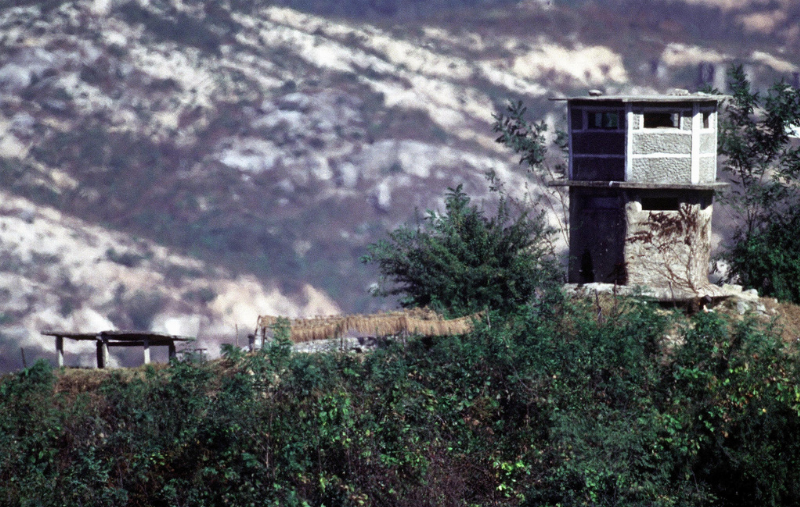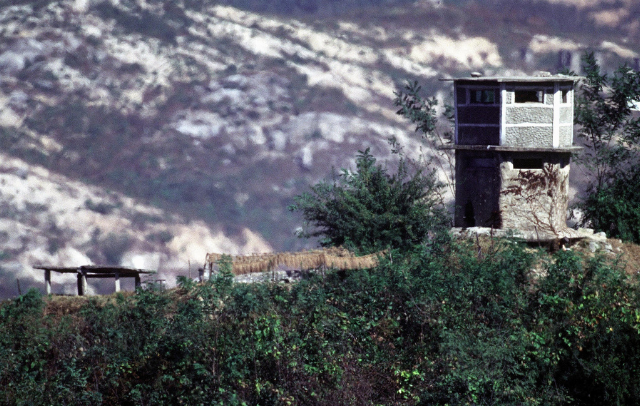


While America never forgets to honor those who fought in open wars — World War II, Vietnam, Iraq, Afghanistan — there is one group of combat veterans that has been deliberately ignored: those who served on the Korean Demilitarized Zone (DMZ) during the Cold War.
From 1954 to 1991, American soldiers patrolled a strip of land that was far from being “demilitarized.” They faced gunfire, ambushes, injuries, mines, and death in clashes with North Korean forces. Still, the Department of Defense refuses to recognize this as a combat zone, except for a short period, roughly from 1968 to 1973. Meanwhile, Congress has repeatedly failed to act, caught at the intersection of Cold War secrecy, bureaucratic cowardice, and political shenanigans.
This is not an oversight. It’s a cover-up.
The Korean DMZ was the frontline of the Cold War in Asia. Over 1,000 firefights occurred during what is often referred to as a “peacetime” era. American soldiers received Purple Hearts. Bodies were sent home under flags. Yet the Pentagon claimed that these were “sporadic and isolated incidents.” The truth? They didn’t want to admit that the U.S. was actively involved in Cold War combat. Doing so would have forced them to acknowledge the cost of a global struggle fought in shadows and skirmishes.
It would have demanded honesty — something our government has never excelled at during difficult wars.
When the Vietnam War was ongoing, the DMZ was largely overlooked by the press. After 1973, when U.S. combat forces withdrew from Vietnam, the Pentagon quietly ended hostile fire pay for Korea, even though soldiers continued to face ambushes and fatalities from North Korean infiltrators. The Nixon Doctrine of shifting the burden to allies made Korea “someone else’s problem.” But our troops never left — and the threat never went away.
Fast-forward to today: Korean DMZ veterans are denied combat patches, overseas bars, and combat service medals. They are left out of the national conversation, cut off from the honors they earned. Why? Because official recognition would require the Defense Department to admit that it misled the public. It would mean acknowledging that the Cold War was was deadly.
Let’s be clear: These veterans stood guard under enemy fire. They watched their brothers die in mine blasts and firefights. They lived constantly under the threat of invasion. They are just as courageous and sacrificial as those who fought in Baghdad or Khe Sanh.
And yet Washington politicians still play games.
Legislation to recognize their service has been repeatedly introduced, only to quietly die in committee. One provision in the National Defense Authorization Act (NDAA) would grant them the right to wear combat patches. Another would approve the long delayed Cold War Victory Medal. However, these efforts are often blocked by bureaucrats who fear setting a precedent and lawmakers who prioritize symbolic gestures over real accountability.
Why? Because admitting the truth could lead to retroactive benefits and awards, and that costs money and political capital. It’s cheaper to ignore the past than to acknowledge it.
But these veterans aren’t going anywhere. They’re organizing, writing, and lobbying. They remember the firefights. They remember who bled and who was forgotten. And they are demanding justice — not pity, not charity, but just the basic respect given to every other American who faced enemy fire.
The Cold War may be over, but the war for truth still rages.
Last month, the U.S. government’s failure to officially recognize the 75th anniversary of the Korean War on June 25, 2025 was a troubling oversight. Despite the war’s significant impact, including over 36,574 American lives lost and decades of influence on U.S. foreign policy, there was no official national commemoration, no presidential statement, and no meaningful tribute from the Department of Defense. This silence not only dishonors the sacrifices of Korean War veterans and their families, but also perpetuates the idea that the conflict remains America’s “Forgotten War.” At a time when our nation should reaffirm its gratitude and remember its history, this lack of recognition sends a painful message of neglect.
The American people face a choice. We can allow the Pentagon and Congress to dismiss these men, or we can insist they receive the recognition they earned in combat. Recognition is about medals, and about preserving memory. It’s about ensuring that when America sends its sons and daughters to serve, they will not be forgotten simply because their war doesn’t fit a convenient narrative.
Korean DMZ veterans stood the line while the rest of the world looked away. It’s time we look back — and stand up for them.
Kevin Mason is a retired Army infantry officer. He holds Master’s degrees in history, international relations – strategic studies, and secondary education.

Image via National Archives.
